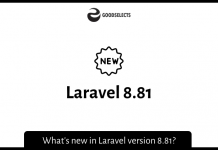There are many different types of Linux operating systems. In this article we’ll look at Debian, Ubuntu, CentOS, and SUSE. Each of these is different, and each offers something special for you to try. Whether you’re a newcomer to Linux or a seasoned professional, we’ll help you choose the best one for your needs. After reading our Linux installation guides, you’ll be ready to make a smart choice.
Ubuntu
Despite the fact that there are many variations of the Linux operating system, Ubuntu has emerged as one of the most widely used. The distribution currently supports over 34.5% of the world’s Linux powered websites. Combined, Ubuntu and Debian make up about 49.9% of Linux distributions used on the web. This article will explore some of the different variations of the OS, and provide a brief comparison of the advantages of each.
Arch: Another popular distribution based on Ubuntu, Arch focuses on a user-friendly Linux environment and a high level of performance. While elementary OS is known for its simplicity and ease of use, it is important to research and compare different versions before deciding which one to install. MX Linux: Another popular Debian-based Linux distribution, MX Linux, is a good choice for users who don’t mind a lot of customization. It also offers a great out-of-the-box experience.
Debian
There are many benefits of Debian, but it isn’t just for server systems. The workstation version comes with an excellent suite of applications, including a free alternative to Photoshop called GIMP, the Iceweasel web browser, the LibreOffice word processor, and the VLC media player. Debian also includes three branches – stable, testing, and experimental. You can try Debian live before installing it on your computer. You can also buy a CD or DVD that contains Debian pre-installed.
Debian is an open-source operating system composed of free software. It uses the Linux kernel and other components from the GNU Project. You can download Debian from the Internet, purchase it on CD, DVD, Blu-ray disc, USB flash drive, or DVD. It is developed by nearly 1,000 volunteer programmers from around the world and is free from commercial influence. To download Debian, simply visit debian.org or download it from one of the distribution mirrors.
CentOS
CentOS is an extremely customizable operating system that is used by many cloud and hosting providers. Its developers have used the Red Hat Enterprise Linux platform as a basis and have incorporated corporate-level security updates and other features to make the OS stable and fast. CentOS has been one of the most popular Linux distributions for a number of years. Although the focus is no longer on speed and frills, it is still a good choice for administrators seeking a more stable enterprise distribution. While Ubuntu is more popular for less experienced users, CentOS is a good choice for those who prefer a more familiar platform.
One disadvantage of CentOS is that it doesn’t receive frequent updates. While new versions of Linux distributions are often released within 24 hours, CentOS releases updates only every few months or a year. However, updates are still important and the CentOS project commits to releasing new versions every 72 hours. As a result, you may end up running a more mature software version than you’d like.
SUSE
SUSE is a multimodal Linux distribution with a theoretical development cycle of eight months and an 18-month lifetime. It offers a wide range of enterprise options, including third-party subscriptions, virtualization, containerization, and server-side security. It also offers an intuitive KDE environment and a number of development tools for administrators. In addition to this, it also includes software package management. Like SLES, Ubuntu is a variant of the Debian operating system. It offers Linux solutions for desktops, servers, and IoT devices. Its biannual release schedule is well-known for its user-friendliness and stability, and it includes premium support services and multi-cloud orchestration for complex workloads.
Leap and openSUSE are two major versions of the SUSE Linux distribution. OpenSUSE uses the Zypp package manager engine and is one of the few major distributions to use it. YaST is a convenient all-in-one control center that enables users to manage and install updates on their openSUSE machines. Although it’s not a complete desktop solution, YaST can be useful for everyday PC users. It also comes in two flavours: Tumbleweed is a rolling release version and Leap is a standard release version.



































